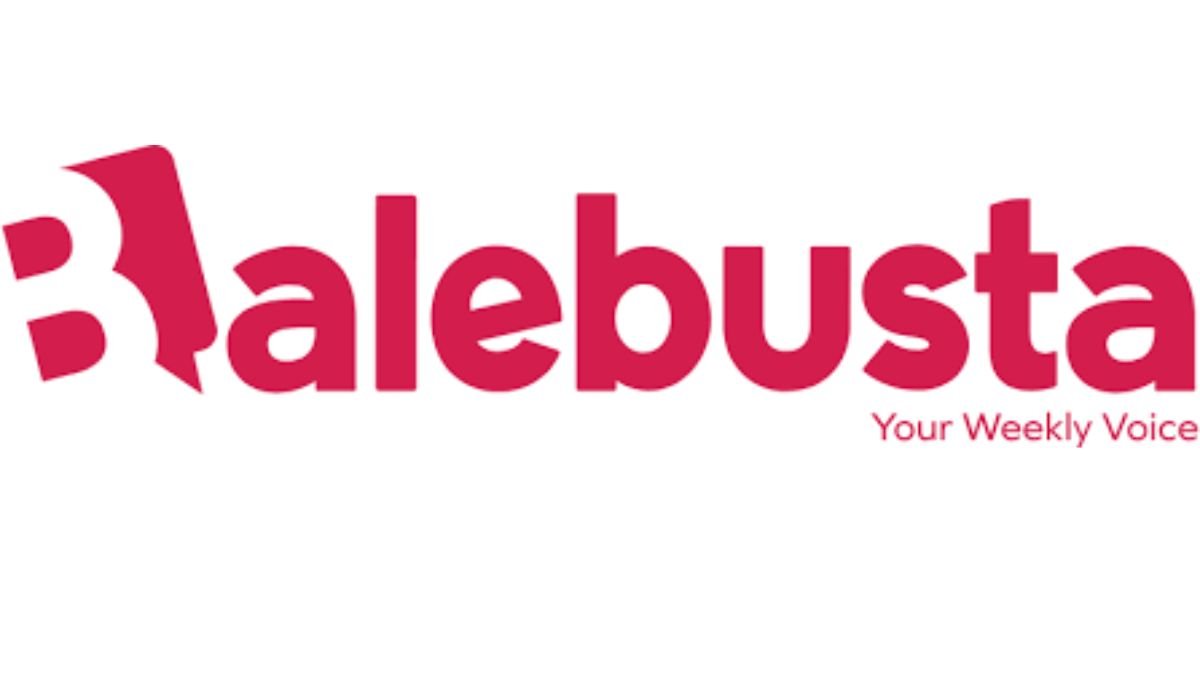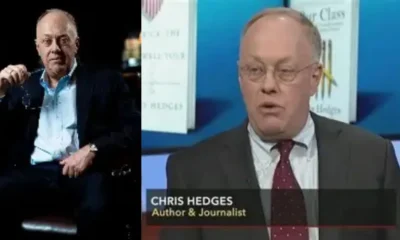GENERAL
CDR Salamander: Navigating Naval Insight in the Modern Age

CDR Salamander has become a respected voice in naval commentary, blending insight, critique, and strategic vision. Known in defense and military circles, this title refers to a long-standing blog that evaluates the decisions, culture, and future of the United States Navy with unfiltered clarity.
The platform isn’t operated by a typical media agency or public figure. Instead, it represents the thoughts and analysis of a seasoned expert—likely a military insider—who values accountability, transparency, and operational excellence in national defense.
The Evolution of a Strategic Voice
The origin of this unique commentary source dates back to the early 2000s when independent blogs gained traction. Amidst a sea of voices, cdr salamander stood out for its consistent, well-informed assessments. Over the years, it has dissected issues like naval procurement, force readiness, and leadership practices with precision.
The pseudonym carries meaning: “CDR” hints at a naval rank, Commander, while “Salamander” symbolizes resilience and a mythical creature that survives intense conditions—perhaps a metaphor for staying objective under institutional pressures.
Why Naval Professionals Trust CDR Salamander
Veteran Knowledge at Its Core
Each post reveals a deep understanding of naval operations, personnel structure, and policy. The author doesn’t just comment on headlines—they provide context, history, and consequences, making this source more than opinion. It’s often used by those in and outside the military to understand complex defense issues.
Transparent and Honest Analysis
A defining trait of the blog is its refusal to sugarcoat problems. It speaks candidly about controversial topics—from failed programs to misguided leadership choices. This honesty fosters discussion and often brings overlooked issues to the forefront.
Broad Influence Within Defense Circles
Despite the anonymity of its author, cdr salamander has influenced strategic discussions in ways few online platforms have. Policymakers, officers, and analysts alike often cite themes raised in the blog when addressing organizational reform or fleet modernization.
As one retired admiral noted, “Reading that blog is like getting a dose of truth before it gets filtered through layers of hierarchy.”
Core Features of the Platform
| Feature | Description | Cost | Efficiency | Reliability | Ease of Use | Distinguishing Factor |
| Independent Insight | Free of institutional or commercial bias | Free | High | High | Simple | Unfiltered commentary |
| Strategic Clarity | Focused on long-term defense and naval objectives | Free | High | High | User-friendly | Depth of understanding |
| Audience Engagement | Facilitates comments and diverse perspectives | Free | Medium | Moderate | Moderate | Community participation |
| Regular Updates | Posts tied to current defense developments | Free | High | High | Easy | Timely, relevant content |
| Balanced Tone | Critical, yet respectful and grounded in facts | Free | High | High | Accessible | Trusted by professionals |
Real-World Effects of the Blog’s Commentary
A prime example of influence was the detailed critique of the Littoral Combat Ship (LCS) program. While media outlets celebrated it as a future-ready project, the blog questioned its practicality, cost-efficiency, and battlefield relevance. These early warnings later echoed in official reviews and funding changes.
The author also emphasized sailor morale, toxic command climates, and underreported incidents—all of which have led to deeper analysis within Navy leadership forums.
Supporting Ethical Military Culture
Challenging Hierarchies for the Right Reasons
One of the reasons readers trust the content is its moral stance. Posts don’t attack for the sake of controversy; they raise legitimate concerns grounded in experience. The writing honors the service while pushing for improvements, making it a valuable tool for leaders seeking reform.
Advocating for Operational Readiness
The emphasis on readiness—material, mental, and procedural—is a recurring theme. Whether discussing fleet numbers or training standards, the blog seeks solutions that ensure mission success and personnel safety.
What Sets CDR Salamander Apart from Other Voices
In today’s crowded digital landscape, many defense blogs and think tanks offer insights. However, cdr salamander remains distinct due to its:
- Authenticity: Rooted in operational knowledge
- Precision: Posts are brief yet impactful
- Accessibility: Complex concepts explained in layman’s terms
It avoids overly technical jargon without dumbing down the content. This balance makes it ideal for junior officers, analysts, and engaged citizens alike.
Ethical Standards Behind the Scenes
Even though the author remains anonymous, the values expressed reflect Navy ideals—honor, courage, and commitment. There’s a clear sense of responsibility in the tone and structure of every article. It’s not speculation or gossip, but informed opinion shaped by service and experience.
This integrity is perhaps what draws even critics to the platform. They may disagree with the stance but rarely question the sincerity.
A Summary of Its Enduring Legacy
From policy shifts to cultural discussions, cdr salamander has been at the forefront of naval blogging. Its contributions can be summarized as follows:
- Accountability Advocate: Champions transparency in leadership and structure
- Historical Lens: Analyzes present challenges through lessons from the past
- Support for the Warfighter: Prioritizes the needs and experiences of the sailor over bureaucratic narrative
Key Themes Regularly Discussed
Leadership and Responsibility
One of the platform’s strongest suits is leadership critique. It often shines a light on decision-making processes that affect thousands, urging for clearer lines of accountability and professionalism at every level.
Personnel Policies
The blog scrutinizes personnel changes—like gender integration, training reforms, and diversity initiatives—not to oppose them, but to ensure they’re executed without compromising combat readiness or morale.
Strategic Forecasting
Beyond critique, the blog suggests proactive ideas for future operations, cyber defense strategies, and hybrid warfare readiness. It doesn’t just highlight problems—it offers vision.
Addressing Criticism and Maintaining Relevance
While highly respected, the blog isn’t without detractors. Some claim its tone may fuel cynicism, while others point to the risks of anonymous publishing. Still, its reliability and ethical rigor continue to attract loyal readers.
As naval warfare evolves with AI, unmanned systems, and joint operations, the blog has already adapted its commentary. Its foresight allows it to remain relevant in an age of shifting doctrines.
The Road Ahead for CDR Salamander
With a changing defense landscape, the platform may expand into other mediums such as audio briefings, interactive Q&As, or print publications. Whatever its form, its mission will remain consistent: to provoke thought, drive reform, and safeguard military excellence through transparency.
Conclusion
CDR Salamander represents the gold standard in independent military analysis. It’s a space where hard truths are shared, critical thinking is celebrated, and the voice of the sailor is never lost in bureaucracy. Through honest assessment and thoughtful commentary, it continues to guide, challenge, and educate defense professionals worldwide. Whether you’re a naval strategist, defense journalist, or policy student, exploring the insights shared through this platform will enrich your understanding of modern military dynamics.
FAQs
What topics does CDR Salamander focus on most?
It covers naval leadership, policy reforms, defense procurement, and cultural issues affecting the U.S. Navy.
Why does the author remain anonymous?
To maintain freedom of expression and avoid institutional retaliation while still sharing professional insights.
Is the blog still active?
Yes, the platform continues to publish current and relevant analysis of naval and defense affairs.
Can military personnel engage with the platform?
Absolutely. Comments and discussion are encouraged, fostering a community of informed dialogue.
What makes it different from mainstream military media?
Its independence and expertise allow it to critique where others hesitate, providing an unfiltered perspective.
Is it affiliated with the U.S. Navy?
No. It operates independently and is not officially associated with any military branch or government body.
GENERAL
Myloxarindor Qylendrithal: Unlocking the Meaning Behind the Mystery

Myloxarindor qylendrithal is a term that immediately sparks curiosity. It sounds rare, complex, and almost mythical. Whether you encountered it in a creative discussion, a fictional setting, or as part of a conceptual idea, this phrase carries a sense of depth and imagination. In this article, we explore what myloxarindor qylendrithal represents, its possible origins, and why it is gaining attention in creative and digital spaces.
The Concept Behind Myloxarindor Qylendrithal
At its core, myloxarindor qylendrithal appears to symbolize something abstract and imaginative. The structure of the phrase suggests fantasy-inspired language, possibly rooted in world-building or speculative fiction. Many unique terms like this are created to represent powerful forces, hidden knowledge, or advanced civilizations in storytelling. The layered sound and rhythm give it a mystical tone that feels intentional and artistic. In creative writing and branding, such distinctive phrases help build identity and intrigue. Myloxarindor qylendrithal stands out because it feels both ancient and futuristic at the same time.
Possible Origins and Linguistic Style
The linguistic style of myloxarindor qylendrithal hints at constructed language patterns often used in fantasy literature and science fiction. Writers frequently develop fictional languages to add realism and depth to imaginary worlds. The phonetic structure resembles high fantasy naming conventions, where syllables are extended and dramatic. This technique enhances immersion and emotional impact. It may also reflect elements of symbolic naming, where the sound of a word carries as much weight as its meaning. As a coined term, myloxarindor qylendrithal demonstrates how language can be shaped creatively to evoke mystery and power.
Creative and Digital Applications
In modern digital culture, unique phrases like myloxarindor qylendrithal can be used for branding, storytelling, gaming, or artistic projects. A distinctive name gives creators a competitive edge by ensuring originality and memorability. For online communities, fantasy games, or fictional universes, such a term can represent a kingdom, artifact, philosophy, or energy source. It may also serve as a symbolic concept in digital art or immersive narratives. Because it is uncommon and highly original, it holds strong SEO potential as well. Unique keywords often rank more easily when paired with meaningful content and strategic optimization.
Symbolism and Interpretative Meaning
The meaning of myloxarindor qylendrithal can be interpreted in many ways depending on context. It might symbolize transformation, hidden wisdom, or a powerful realm beyond ordinary perception. The layered sound of the phrase gives it an almost ceremonial feel, suggesting importance and depth. In speculative storytelling, names like this often represent ancient forces or lost civilizations. Symbolic language allows readers to project their own meaning onto the term, making it flexible and imaginative. This openness adds emotional resonance and creative freedom.
Why Unique Terms Like This Matter
In an era dominated by repetitive content, originality is valuable. Myloxarindor qylendrithal demonstrates the power of creative language in building strong identity and differentiation. Unique terminology strengthens brand presence, supports world-building, and enhances memorability. It encourages deeper engagement because people naturally want to understand what unfamiliar words mean. From a search engine perspective, distinctive phrases reduce competition and increase visibility. More importantly, they inspire creativity and intellectual exploration.
Conclusion
Myloxarindor qylendrithal is more than just an unusual phrase. It represents imagination, linguistic creativity, and the power of unique expression. Whether used in storytelling, branding, or conceptual design, it carries depth and intrigue. In a crowded digital world, originality stands out—and this term embodies that principle perfectly. By embracing creative language like myloxarindor qylendrithal, writers and creators open doors to new ideas and limitless possibilities.
FAQs
What is myloxarindor qylendrithal?
It is a unique, imaginative term often interpreted as a symbolic or fantasy-inspired concept.
Is myloxarindor qylendrithal a real word?
No, it appears to be a coined or constructed phrase rather than a dictionary term.
Where can myloxarindor qylendrithal be used?
It can be used in creative writing, gaming, branding, or digital storytelling projects.
Why are unique phrases like this important?
They help create originality, improve memorability, and strengthen identity.
Does myloxarindor qylendrithal have a fixed meaning?
No, its meaning depends on context and creative interpretation.
GENERAL
American Lifestyles: A Closer Look at Culture, Work, and Everyday Living

American lifestyles are often described as dynamic, diverse, and constantly evolving. From busy urban centers to quiet rural towns, life in the United States reflects a blend of tradition and modern ambition. The country’s size, cultural diversity, and economic opportunities shape how people live, work, and spend their free time. While no single definition fits everyone, certain patterns stand out in American lifestyles, including a focus on independence, career growth, innovation, and personal freedom. Understanding these elements helps explain how Americans approach daily living and long-term goals.
Cultural Diversity and Identity
One of the strongest features of American lifestyles is cultural diversity. The United States has long been shaped by immigration, bringing together people from different backgrounds, languages, and traditions. This multicultural environment influences food, music, fashion, holidays, and even communication styles. Cities like New York City and Los Angeles are prime examples of cultural blending, where communities celebrate both American traditions and their heritage.
This diversity encourages openness and creativity in everyday life. Families may celebrate Thanksgiving while also observing cultural festivals tied to their ancestry. As a result, American lifestyles often combine global influences with local customs. Identity becomes personal rather than fixed, allowing individuals to express themselves freely through lifestyle choices, careers, and social circles.
Work Culture and Career Focus
Work plays a central role in shaping American lifestyles. Many Americans prioritize career growth, entrepreneurship, and professional achievement. The idea of the “American Dream” still influences how people view success, often linking it to financial stability, homeownership, and upward mobility. Long working hours and competitive industries reflect a strong work ethic that values productivity and ambition.
At the same time, modern shifts have changed workplace culture. Remote work, digital entrepreneurship, and the gig economy now allow more flexibility. Professionals in cities like San Francisco often work in technology-driven environments, while others pursue freelance careers from home. This blend of hard work and innovation continues to shape American lifestyles, balancing ambition with new approaches to work-life balance.
Family Life and Social Values
Family structures in the United States vary widely, reflecting social change and personal choice. Nuclear families, single-parent households, blended families, and same-sex couples all contribute to the country’s social landscape. Respect for individual decisions is a core part of American lifestyles, giving people the freedom to define what family means to them.
Community involvement also plays an important role. School events, neighborhood gatherings, and volunteer work help build social connections. While independence is valued, Americans often support local causes and charities. This balance between personal freedom and community engagement defines many aspects of social life, creating both private space and shared responsibility.
Urban vs. Suburban and Rural Living
Geography significantly shapes American lifestyles. Urban living in cities like Chicago offers fast-paced environments, diverse job markets, and vibrant nightlife. Residents often rely on public transportation and live in apartments or condominiums close to work and entertainment hubs. City life emphasizes convenience and cultural access.
In contrast, suburban areas focus on family-friendly neighborhoods, larger homes, and quieter surroundings. Rural communities offer even more space, often centered around agriculture or small businesses. These differences show how lifestyle choices depend on personal priorities such as career goals, cost of living, and preferred pace of life. Each setting reflects a different version of American living.
Food, Entertainment, and Leisure
Food culture highlights the variety found in American lifestyles. From fast food chains to farm-to-table restaurants, eating habits range widely. International cuisines thrive alongside classic American dishes, showing the impact of globalization. Dining out, food delivery apps, and social gatherings centered around meals are common parts of daily life.
Entertainment also shapes leisure time. Sporting events, music festivals, streaming platforms, and outdoor recreation offer countless options. The influence of major entertainment hubs like Hollywood has made American media globally recognizable. Whether hiking in national parks or attending concerts, Americans value recreation as a way to recharge and connect socially.
Technology and Modern Living
Technology deeply influences modern American lifestyles. Smartphones, social media, and e-commerce platforms shape communication and shopping habits. Digital payments, online education, and remote healthcare services have become normal parts of daily routines. Innovation drives convenience and efficiency in both personal and professional life.
The rapid adoption of new technologies reflects a forward-thinking mindset. Many households rely on smart home devices, streaming services, and digital work tools. This tech-driven culture supports entrepreneurship and global connectivity, making American lifestyles adaptable and future-focused. While technology brings challenges such as screen time and privacy concerns, it remains central to how people live today.
Conclusion
American lifestyles cannot be defined by a single description. They are shaped by diversity, ambition, innovation, and personal freedom. From cultural traditions and career goals to family values and technological advancement, daily life in the United States reflects constant change. Urban, suburban, and rural communities all contribute to the broader picture of American living. By understanding these elements, we see that American lifestyles are less about uniformity and more about choice, opportunity, and self-expression in a fast-moving world.
FAQs
What are American lifestyles known for?
American lifestyles are known for diversity, independence, career focus, and a strong emphasis on personal freedom and innovation.
How does culture influence American lifestyles?
Cultural diversity shapes food, traditions, social values, and identity, creating a blend of global and local influences.
Is work important in American lifestyles?
Yes, work and career growth are major priorities, often connected to financial stability and personal success.
What role does technology play in daily life?
Technology supports communication, remote work, entertainment, and online services, making life more connected and efficient.
Do all Americans live the same way?
No, lifestyles vary widely depending on location, culture, income, and personal choices, reflecting the country’s diversity.
GENERAL
Balabusta Magazine: Where Culture, Creativity, and Community Meet

The Balabusta Magazine is more than just a publication; it’s a celebration of identity, heritage, and modern living. With a fresh voice and thoughtful storytelling, the magazine connects readers to culture, food, art, and strong community values. Whether you are passionate about meaningful journalism or simply love discovering inspiring stories, this lifestyle magazine offers depth without feeling heavy. It blends tradition with contemporary insight in a way that feels warm, intelligent, and refreshingly authentic.
The Meaning Behind The Balabusta Magazine
The word “balabusta” traditionally refers to a capable, strong, and resourceful woman who manages life with grace and determination. The Balabusta Magazine embraces that spirit and turns it into a powerful editorial identity. It focuses on empowered living, cultural pride, and thoughtful storytelling that resonates with modern readers. Instead of chasing trends, the magazine highlights timeless values such as family, resilience, creativity, and leadership.
Through its name and mission, the publication honors heritage while encouraging personal growth and innovation. It stands as a symbol of confidence and community strength. Readers feel represented and understood, which is why the magazine continues to build a loyal and engaged audience.
Editorial Focus and Content Style
The Balabusta Magazine covers a wide range of lifestyle topics, including food culture, family traditions, wellness, entrepreneurship, and creative expression. Its content feels carefully curated rather than mass-produced. Articles are written in a warm yet professional tone, making complex subjects easy to understand without oversimplifying them.
One of the publication’s strengths lies in its narrative journalism approach. Instead of quick summaries, it dives into personal stories, cultural insights, and meaningful conversations. Readers are not just consuming content; they are connecting with lived experiences. This storytelling style gives the magazine depth and emotional resonance.
Celebrating Food, Tradition, and Modern Living
Food plays a central role in The Balabusta Magazine, reflecting how cuisine connects generations and preserves cultural identity. Recipes are not just instructions; they are stories of heritage, memory, and family traditions. This focus on culinary storytelling adds authenticity and warmth to the publication.
At the same time, the magazine explores modern lifestyle trends, sustainable living, mindful wellness, and creative entrepreneurship. It balances nostalgia with innovation, showing readers how to honor their roots while embracing change. This unique blend makes the content relatable to both older and younger audiences.
Community, Empowerment, and Representation
A key reason why The Balabusta Magazine stands out in the crowded media landscape is its strong sense of community. It highlights voices that are often overlooked and gives space to diverse perspectives. Interviews with creators, leaders, and everyday changemakers help readers feel inspired and connected.
The magazine promotes empowerment without being overly dramatic or cliché. Its approach is subtle yet impactful, encouraging readers to take pride in their identity and pursue meaningful goals. By focusing on representation and inclusivity, it builds trust and long-term loyalty among its audience.
Why The Balabusta Magazine Stands Out Online
In today’s digital publishing world, many lifestyle platforms rely heavily on fast content and viral trends. The Balabusta Magazine takes a different path by prioritizing quality over quantity. Its long-form articles, rich storytelling, and culturally grounded themes provide real value rather than surface-level entertainment.
From an SEO perspective, the magazine integrates relevant topics such as cultural lifestyle, empowered women, food heritage, and modern community living. It maintains a natural flow of keywords without sounding forced or repetitive. This strategic yet organic approach helps it rank well while keeping the reading experience smooth and enjoyable.
Conclusion
The Balabusta Magazine is a powerful example of how modern publishing can honor tradition while embracing progress. With its focus on culture, food, empowerment, and authentic storytelling, it creates a meaningful space for readers seeking depth and connection. The publication stands out not because it shouts the loudest, but because it speaks with clarity and heart.
For anyone looking for a lifestyle magazine that feels intelligent, warm, and genuinely inspiring, The Balabusta Magazine delivers substance without sacrificing style. It proves that strong storytelling and cultural pride can thrive beautifully in the digital age.
FAQs
What is The Balabusta Magazine?
The Balabusta Magazine is a lifestyle publication that celebrates culture, food, community, and empowered living through meaningful storytelling.
What type of content does The Balabusta Magazine publish?
It covers topics such as food heritage, family traditions, wellness, entrepreneurship, and cultural identity.
Who is The Balabusta Magazine for?
The magazine is designed for readers who value culture, authenticity, strong community connections, and modern lifestyle insights.
Is The Balabusta Magazine focused on women’s empowerment?
Yes, empowerment is a core theme, inspired by the meaning of “balabusta,” which represents strength, capability, and leadership.
Why is The Balabusta Magazine unique?
Its blend of cultural storytelling, modern lifestyle content, and community-driven journalism makes it stand out from trend-focused media platforms.
-

 GENERAL7 months ago
GENERAL7 months agoRobert Hubbell Wikipedia: What’s His 2025 Biography Guide?
-

 EDUCATION9 months ago
EDUCATION9 months agoJay Kuo Substack: Unpacking the Voice of Legal Insight
-

 GENERAL9 months ago
GENERAL9 months agoDream Cake: A Decadent Delight Worth Savoring
-

 GENERAL9 months ago
GENERAL9 months agoChris Hedges Substack: A Voice of Dissent in the Digital Age
-

 ENTERTAINMENT9 months ago
ENTERTAINMENT9 months agoTyler the Creator Dad Truth
-

 EDUCATION9 months ago
EDUCATION9 months agoEconomic Blackout Results: The Financial Domino Effect
-

 TECHNOLOGY9 months ago
TECHNOLOGY9 months agoHow to Cancel Substack Subscription
-

 GENERAL9 months ago
GENERAL9 months agoMax Azzarello Substack: Inside the Mind of a Radical Truth-Seeker
